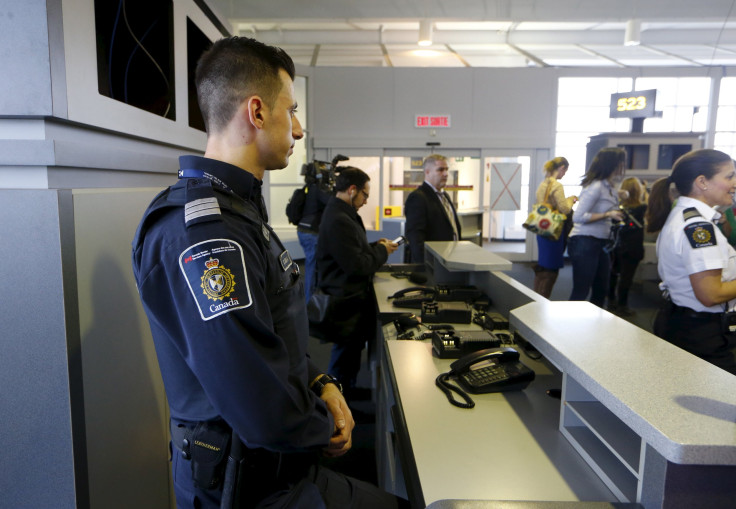Is The Border Safe? US Could Detain Canadians In Canada Under New Bill

American border agents could have the power to search and detain Canadian citizens in Canada under a bill proposed by Canada's liberal government.
Bill C-23 would expand the authority of U.S. Customs and Border Protection agents during the "pre-clearance" phase of the border crossing process. The system would allow U.S. border patrol agents to conduct immigration and customs inspections and interviews at eight Canadian airports in order to ease congestion and increase efficiency for travelers entering the U.S. from Canada.
The newest pre-clearance agreement was signed by U.S. and Canadian officials in 2015. The new bill would make that agreement the law in Canada. The U.S. Congress passed corresponding legislation in December. Canadian parliament was expected to follow suit and pass C-23.
Great news - the US Senate passed Canada #preclearance bill unanimously. One step closer to easier travel and trade between our countries.
— Justin Trudeau (@JustinTrudeau) December 10, 2016
Under the previous pre-clearance agreement, a Canadian could withdraw from a pre-clearance interview at any time. But under the new bill, a Canadian could be held and forced to answer questions, which could lead to charges, the CBC News reported.
"The change is that once a traveler indicates their wish to withdraw, pre-clearance officers would be authorized to exercise certain authorities, such as question the traveler as to their identity and reason for withdrawing," Scott Bardsley, a spokesperson for Public Safety Canada, told CBC News. "Well, the problem is, if that person tries to leave, then they can be charged with failing to co-operate, which under this bill is an offense they can be arrested for, and then charged and given a federal record."
The law would also give U.S. agents new search powers. Previously, only a Canadian officer could perform a strip search. But C-23 gives U.S. officers the power to conduct strip searches if a Canadian officer is unavailable or unwilling, Calgary immigration lawyer Michael Greene told CBC News.
"So you could have a circumstance where the Canadian officer says, 'No I don't think a search is warranted here. I'm not willing to do it.' But the U.S. officer just says, 'Fine, we're going to do it anyway,'" Greene said.
Canadian Prime Minster Justin Trudeau traveled to Washington, D.C., to meet with President Donald Trump Monday. The preclearance system was expected to be part of their discussion. Recent meetings between officials from the two countries have centered on the border.
“Our conversations focused on ways to make that border thinner,” Canadian Foreign Affairs Minister Chrystia Freeland told the Toronto Sun during recent meetings with U.S. officials in Washington, D.C.
“We talked about preclearance for cargo as an area that we might want to be working on, going forward," Freeland said.
© Copyright IBTimes 2024. All rights reserved.






















